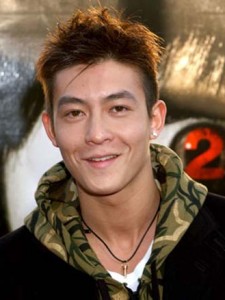
http://www.brandrepublic.com/News/789570/About-Celebrity-endorsements/
Chances are, two weeks ago you hadn’t even heard of Hong Kong singer/actor, Edison Chen. Now, thanks to the internet and a healthy dose of amoral curiosity, you’ve probably seen a bit too much of him.The speed of ‘Edisongate’ has left Asia’s marketing industry baffled.
In response, brands such as Pepsi, EPS and Disney have dropped Chen and several of the female victims, including Twins singer Gillian Chung, from their marketing activities. Meanwhile Kose Corp halted ads for its Visee brand after spokesperson Kumi Koda claimed women over 35 had “rotten fluid” in their wombs.
1 As with scandals of any other nature, Edisongate demonstrated a need for transparency with your consumer. “Brands should make an honest explanation over why they’ve chosen a certain celebrity,” says Charley Kan, national CD and MD of MEC China, which recently selected blogger Xu Jin Lei to endorse Sony Cybershot. Referring to the Kate Moss cocaine scandal in 2005, Kan says he admires the brands that stood by their fallen star. “Those brands really knew what they stood for and why they’d chosen Kate,” he says. “Their response showed consumers the celebrity was more than just a contract.”
2 Disneyland Hong Kong learned this the hard way when it shelved a Lunar New Year spot co-starring Chung. However, Glendy Chu, director of media relations, downplayed Chung’s significance to the brand. “Hong Kong Disneyland has only used one spokesperson since opening. We have very good relationship with Jacky Cheung,” she says, referring to Hong Kong’s squeaky-clean pop king. “We have also worked with other celebrities from Hong Kong and the region on a one-off basis or longer-term.”
3 Too often in Asia, the attitude towards celebrity endorsements is to simply shove a “bunch of money” to a celebrity and “borrow his face for awhile”, says Martin Roll, CEO of brand consultancy Venture Republic. More than the right look, lifestyle, influence over a core target, and a positive public perception are just as important. “Companies should view celebrity endorsements as long-term strategic decisions, rather than short-term tactical decisions which can be changed on a frequent basis,” Roll says.
4 Do your due diligence before naming a celebrity spokesperson. Kan says there are many analytical tools, such as Group M’s 3D tool or BrandZ, which can forecast the personality fit of a brand and celebrity. Another trick of the trade? A mole. “It’s better to have an insider reference on the celebrity and know them in person,” says Kan. In Xu’s case, Sony Ericsson got to know the celebrity blogger for months before striking a deal.
5 Despite the undisputed utility of a famous face on an ad, Roll cautions against allocating too much to endorsement deals. He estimates most Asian companies which use celebrities spend between 10 to 15 per cent of their media budgets on endorsements. His advice? Five to 10 per cent. But no company should rely on celebrity endorsement alone, says Georgeana Fung, EVP of Weber Shandwick Greater China. “It could be a quick and powerful way in the initial stage to build awareness among a specific target consumer group, but it should be just one part of the marketing mix and in no way replace a comprehensive brand-building process.”
6 “Companies in Asia are getting savvier when it comes to the contracts, the expectations, the transparency,” Roll says. “It could make it very difficult for a B-list celebrity to find sponsorship deals, unless they start acting more professional.” He says a simple clause outlining the consequences of potential fallout is always wise, if not imperative now. “You’ve got to sit down with the celebrity and lawyers and scrutinise the contract. This isn’t done often enough. I think you could argue that with some of these recent scandals that the brands didn’t regulate what the contract was about.”
7 If there is any consolation to those affected by Edisongate, perhaps it is this: consumers are more forgiving than brands tend to think. Take Kate Moss. Celebrities and marketers are human, after all. “Audiences aren’t so judgemental now,” Kan says. “People nowadays don’t necessarily think that using Edison means your brand is dirty.”
What it means for…
Advertisers
– Do your due diligence before naming a celebrity spokesperson. This can involve proprietary agency tools, focus groups, and old-fashioned insider connections. Whatever it takes for you to trust that the celebrity’s personality and lifestyle also match your brand’s.
– Be more transparent with your consumers. If you can’t convince your target audience why you’ve chosen a certain spokesperson, you’ve probably chosen the wrong one. Find one you won’t be afraid to support in the event of a scandal.
– Don’t rely on one celebrity. Pepsi and EPS, former Edison Chen sponsors, will probably go unharmed by the incident, since they each engage a wide variety of local artistes.
– Expect a higher price on Asia’s A-list celebrities.
Agencies
– Question, question, question your client’s choice of a celebrity endorsement. Does the personality fit the brand? Does the celebrity have influence over the target audience?
– Get involved in the legal processes behind engaging a celebrity, if possible. Ultimately if a scandal breaks out and contracts are shelved, your bottom line suffers first.
– If you haven’t already, it may be worth investing in proprietary tools to support a celebrity/client match.
